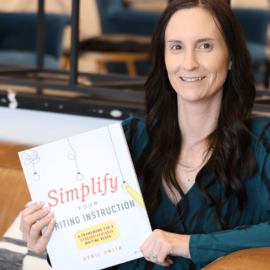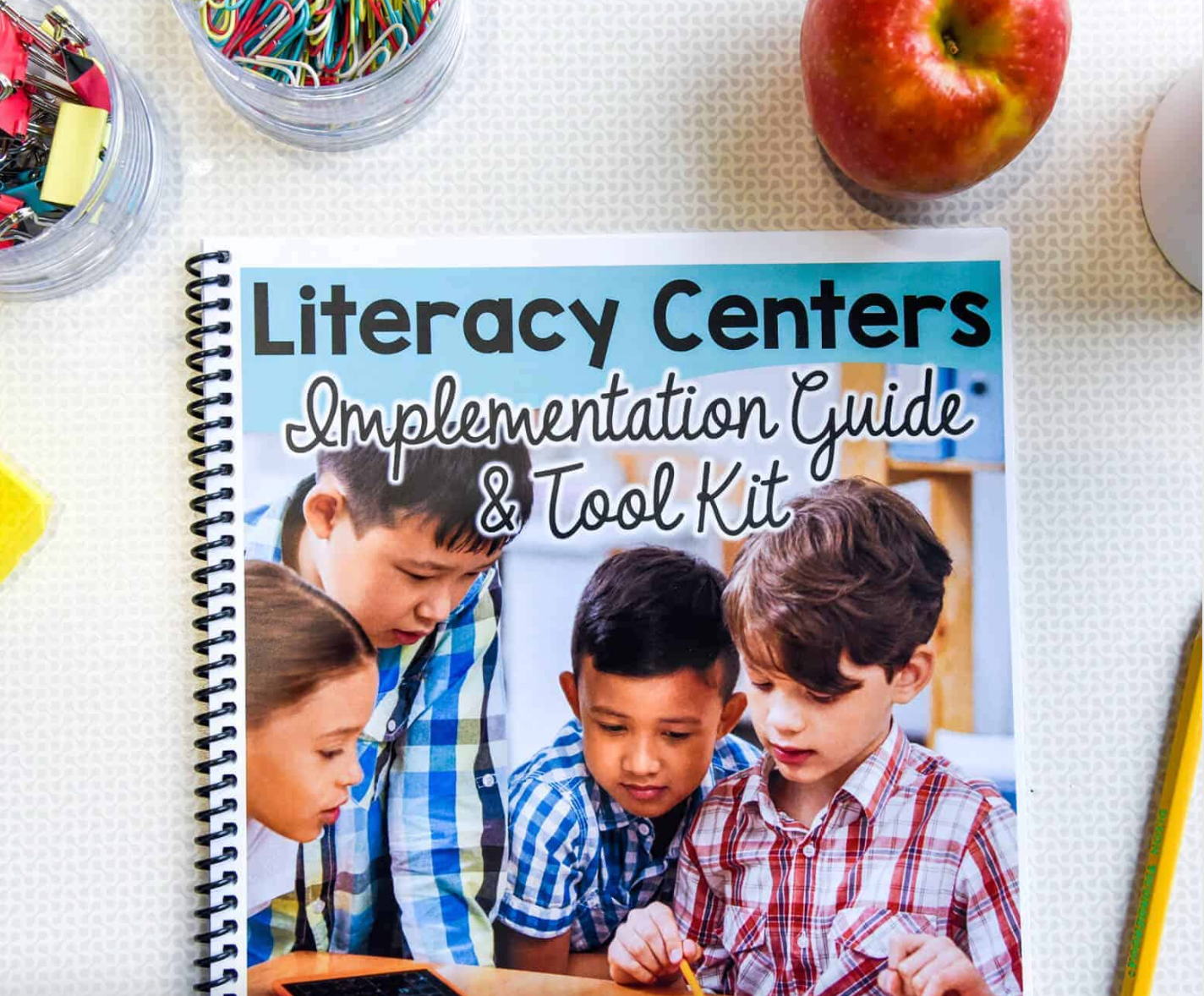I’m a bit of a professional development hoarder, mainly books, but also sometimes courses. Like most teachers, I consider myself a life-long learner. The biggest part of my PD book collection is writing instruction. I’m pretty passionate about teaching writing in an authentic way, so I read everything I can get my hands on.
Some links in this post are affiliate links. If you purchase through them, I may be compensated at no extra cost to you. However, I only recommend resources that I personally own and love. Please review my disclosure policy for more information.
My 4 Favorite Books About Teaching Authentic Writing in Grades 3-5
Book 1: Teach Writing Well: How to Assess Writing, Invigorate Instruction, and Rethink Revision
This is my go-to book on revision and assessment. Ruth’s main focus for revision is on teaching students to ask the right questions about their writing. She focuses a lot on how revision relates to the writing traits and the writing process. One of the most valuable pieces of this book is the rubric portion. She provides detailed, student-friendly rubrics for each trait. If you’ve struggled at all with grading writing in the past, this is a great place to start!
One of my favorite quotes from the book is: “Children don’t hate writing. They hate how we teach writing.” Ain’t that the truth. Ruth uses student writing examples to help teach revision, which can be one of the most difficult parts of writing for both students and teachers. It can be tedious depending on how it’s taught. There are lots of tips throughout the book on building revision into each step in an authentic manner.
Book 2: Writers Read Better: Nonfiction
This is my favorite book for step-by-step nonfiction lessons. The lessons cover skills that really merge reading and writing, and they are very open-ended. Because of this, you won’t use every lesson in the book. This book has solid lessons for some of the tricky writing situations you may encounter with your students. Here are some examples:
- Deciding what’s most important to revise
- Drafting with placeholders for later facts
- The many purposes of paragraphs
What I like most about this book is if my students struggle with something during our informational writing unit, I can usually find a lesson in here to supplement. It doesn’t replace what we do for our informational writing, but it gives me some great mini-lesson ideas for the places my class gets stuck.
I’ve also pre-ordered the narrative version, which is being released in June 2019. I wish it was sooner because I would love to add this to my toolbox!
Book 3: Nonfiction Mentor Texts
This book offers fantastic connections between children’s literature and nonfiction writing. It mainly focuses on informational and opinion/persuasive writing, and it gives a lot of ideas for different ways to use literature to write nonfiction text. Book reviews, book talks, postcards, emails, and interviews are some of the formats that the authors of this book focus on.
Purchasing this book is worth it for the mentor text ideas. There are a ton of texts listed in the lessons. I especially love the section on using literature to teach writing leads, which students struggle to write every year.
Book 4: Feedback That Moves Writers Forward
This is my favorite book of the four. Why? Because feedback is where I struggled as a teacher. Our writing time is so limited that I struggled to build in quality feedback. This book reminded me of the importance of feedback and how to build it in as a positive piece of our writing process.
My favorite part of this book is the section on conference structures. Patty includes a structure (with times), suggested things to say, and many examples of conference forms. I believe that goal setting is the most authentic way to teach revision, and this book definitely supports that. If you want to put more emphasis on conferences and other feedback opportunities during writing, read this book!







